COVID TIMELINE
For many of us, particularly those living in Melbourne – one of the most locked-down cities in the world – the COVID-19 pandemic has become a blur. So, here, we tease it out to show how the pandemic evolved, and how it was managed at Trinity College.
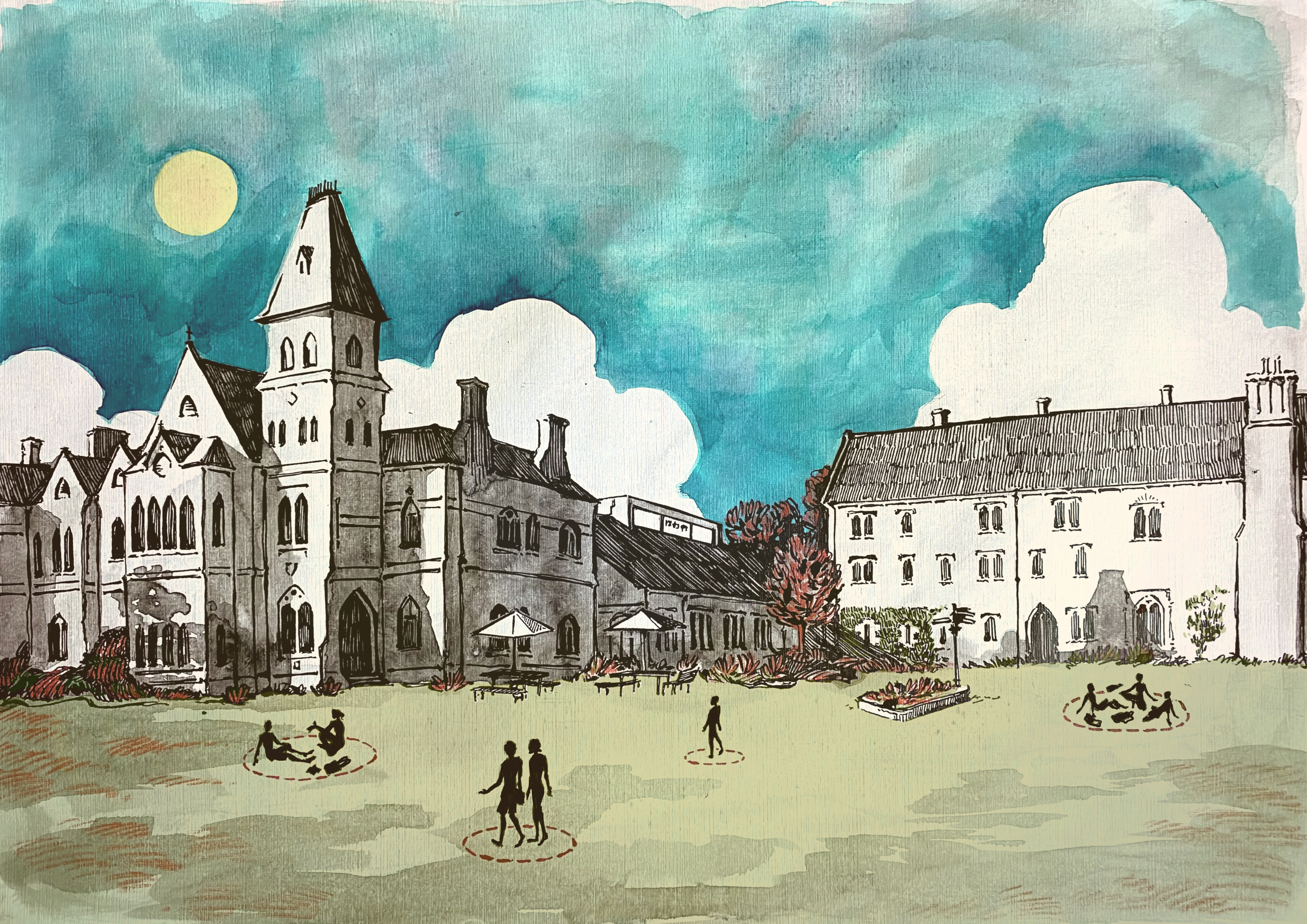
2019
31 DECEMBER
The Wuhan Municipal Health Commission in China reports a cluster of pneumonia cases in Wuhan. The illness, COVID-19, is later identified as being caused by a novel coronavirus, SARS-CoV-2.
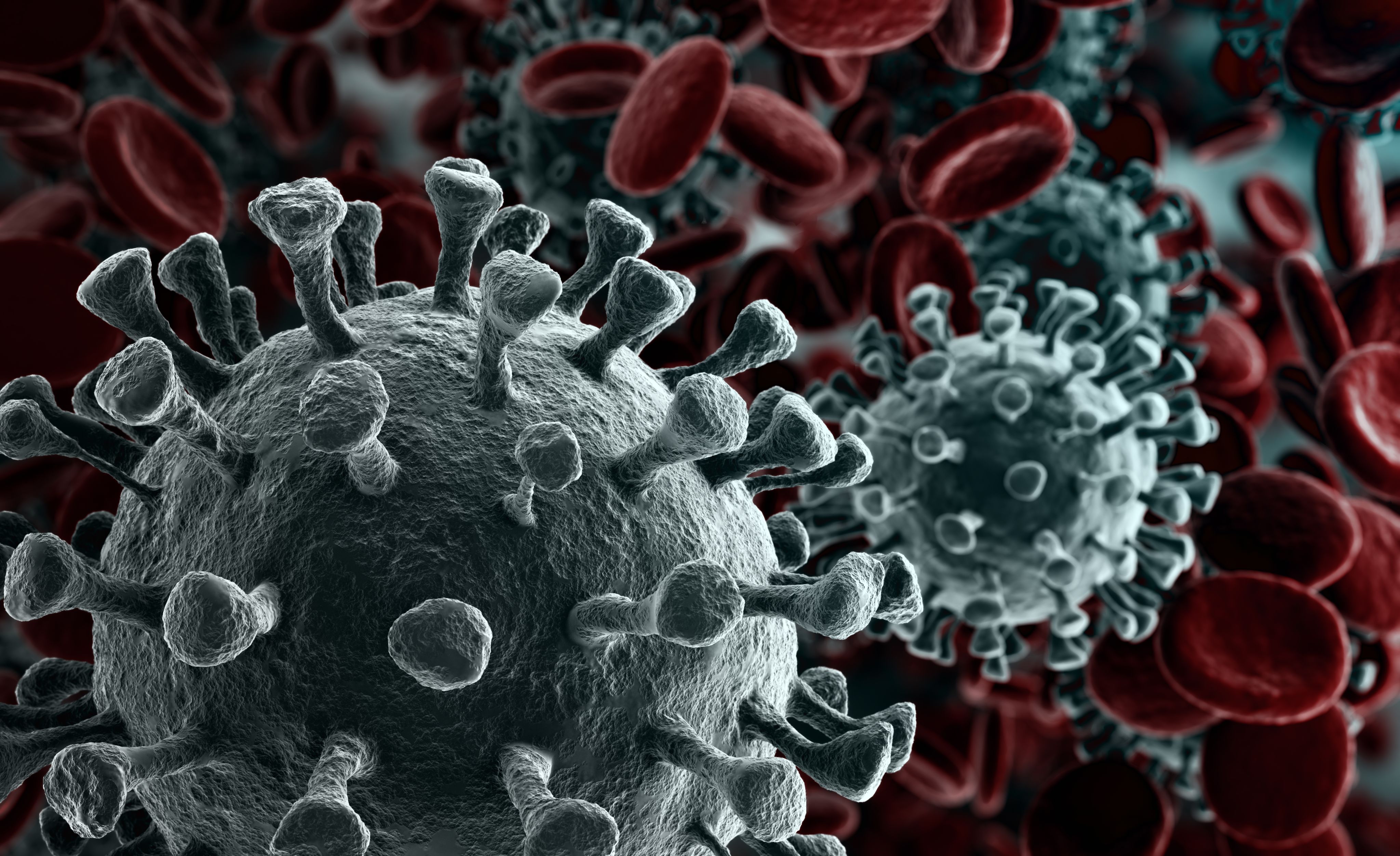
2020
13 JANUARY
A case of COVID-19 is confirmed in Thailand; the first recorded case outside of China.
25 JANUARY
The first case of COVID-19 is confirmed in Australia (Melbourne). Daily news reports of COVID-19 cases and deaths become the norm.
30 JANUARY
COVID-19 is declared a global public health emergency of international concern by the World Health Organisation.
1 FEBRUARY
The Australian government advises that visitors from mainland China who are not Australian citizens or permanent residents, or their dependents, will not be allowed entry into Australia.
3 FEBRUARY
The Trinity College Board meets via video conference for the first time to learn about the College’s response to COVID-19. Weekly video briefings are held thereafter.
19 FEBRUARY
Victoria’s minister for tourism, sport and major events launches a $5 million interstate and international campaign to encourage people to visit Victoria, in response to COVID-19 and the summer’s bushfires. (Yeah, awkward.)
4 MARCH
Pathways School students are told they need to be in Australia by 18 March in order to commence their program on campus in Melbourne.
5 MARCH
Panic buying prompts supermarkets to impose purchase limits on toilet paper, which will be expanded to other items, including canned goods, flour and handwash, at various points of the pandemic.
6 MARCH
The Pathways School holds an on-campus welcome party for new students, which will be the last major event to take place before strict social distancing measures and lockdowns are introduced.
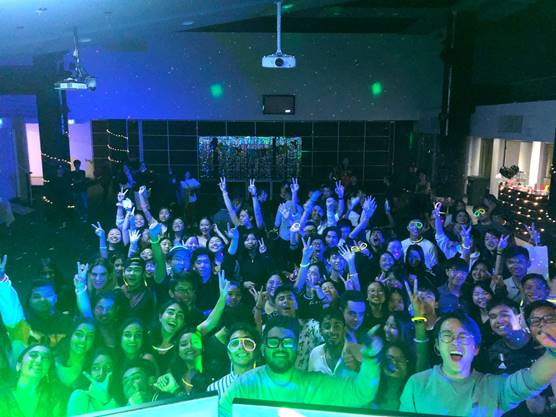
11 MARCH
The World Health Organisation declares a worldwide pandemic – the first caused by a coronavirus. This prompts 348 countries to close their borders, partially or completely.
12 MARCH
The Formula One Australian Grand Prix in Melbourne is cancelled hours before the practice session is due to begin, with thousands of fans turned around at the gate.
13 MARCH
A National Cabinet is established to bring together the Commonwealth and state and territory governments, chaired by the Prime Minister.
16 MARCH
The Victorian government declares a state of emergency for four weeks (if only we knew...). Trinity College closes its campus to visitors. All Trinity events are postponed until further notice. A Residential College COVID action plan is put in place.
18 MARCH
The Australian government announces a number of measures to be implemented by state governments, including banning non-essential indoor gatherings of 100 people or more and 1.5-metre social distancing measures. All Pathways School lectures, University of Melbourne lectures and tutorials, and Theological School units that don’t have a practical field-based component, go online.
20 MARCH
Australia closes its border to all non-residents of Australia.
21 MARCH
The Warden convenes an emergency senior management meeting on a Sunday to discuss how to manage a Residential College close down. Tasmania is the first Australian state to close its borders, imposing a two-week quarantine period for anyone arriving in the state.
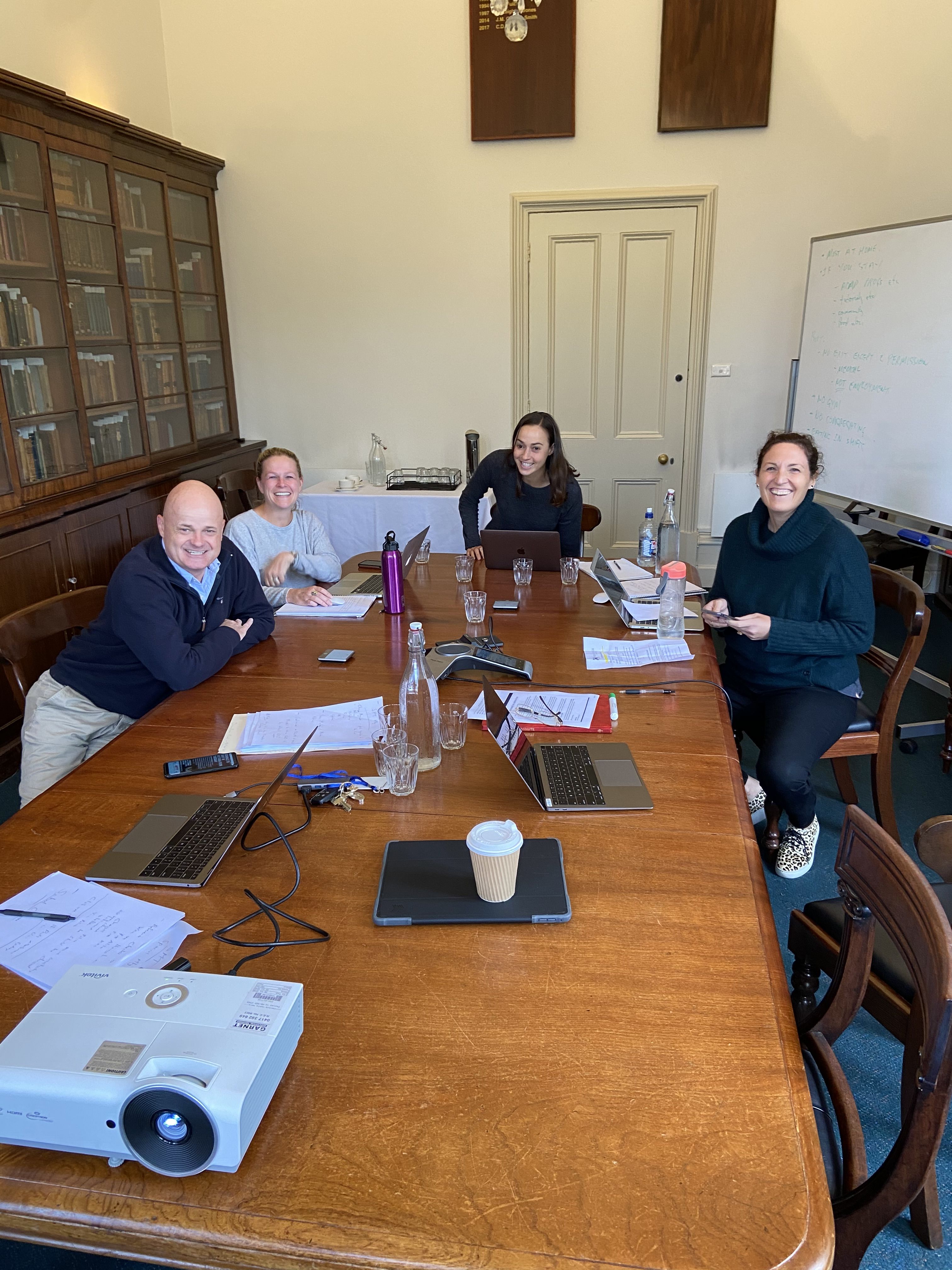
22 MARCH
Pubs, gyms, cinemas and other entertainment venues are ordered to close across Australia, and restaurants and cafes are permitted to only serve takeaway or home delivery orders.

23 MARCH
An emergency meeting for Residential College students is held on the Bulpadock, where Dean Leonie Jongenelis tells students, ‘This is our war’. All Trinity College staff are encouraged to work from home if they can.
24 MARCH
The Tokyo Olympic Games are officially postponed (see story about Trinity alum Ian Chesterman). Residential College and Pathways School tutorials are moved online, as well as drama classes, which, until this point, had remained face-to-face. Schools in Victoria move to online teaching. Residential College students are given the option to return home and remain actively engaged with the College virtually. 160 students choose to stay, and these students are not permitted to leave the campus.
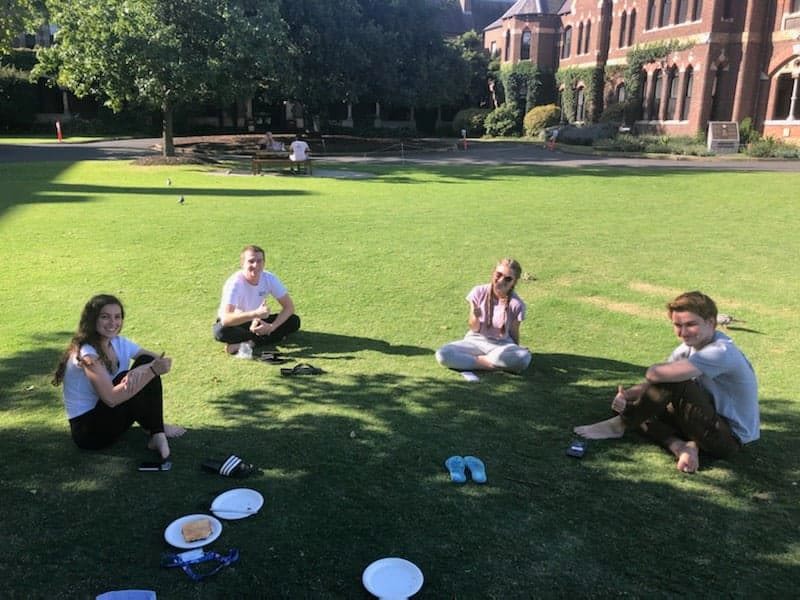
26 MARCH
The first death in Melbourne from COVID-19 is confirmed. Trinity College announces that it will temporarily stand down a number of staff.
27 MARCH
All Trinity College staff, except for essential workers, are ordered to work from home.
30 MARCH
Victoria goes into lockdown – only two people can gather outside unless they are members of a household, and there are only four reasons to leave home: for exercise, food and supplies, work and education, and to access medical care or provide caregiving. The University of Melbourne becomes a virtual campus. The Australian government introduces ‘JopKeeper’ payments to help businesses retain staff.
5 MAY
All Residential College students living on campus are compulsorily tested for COVID-19.
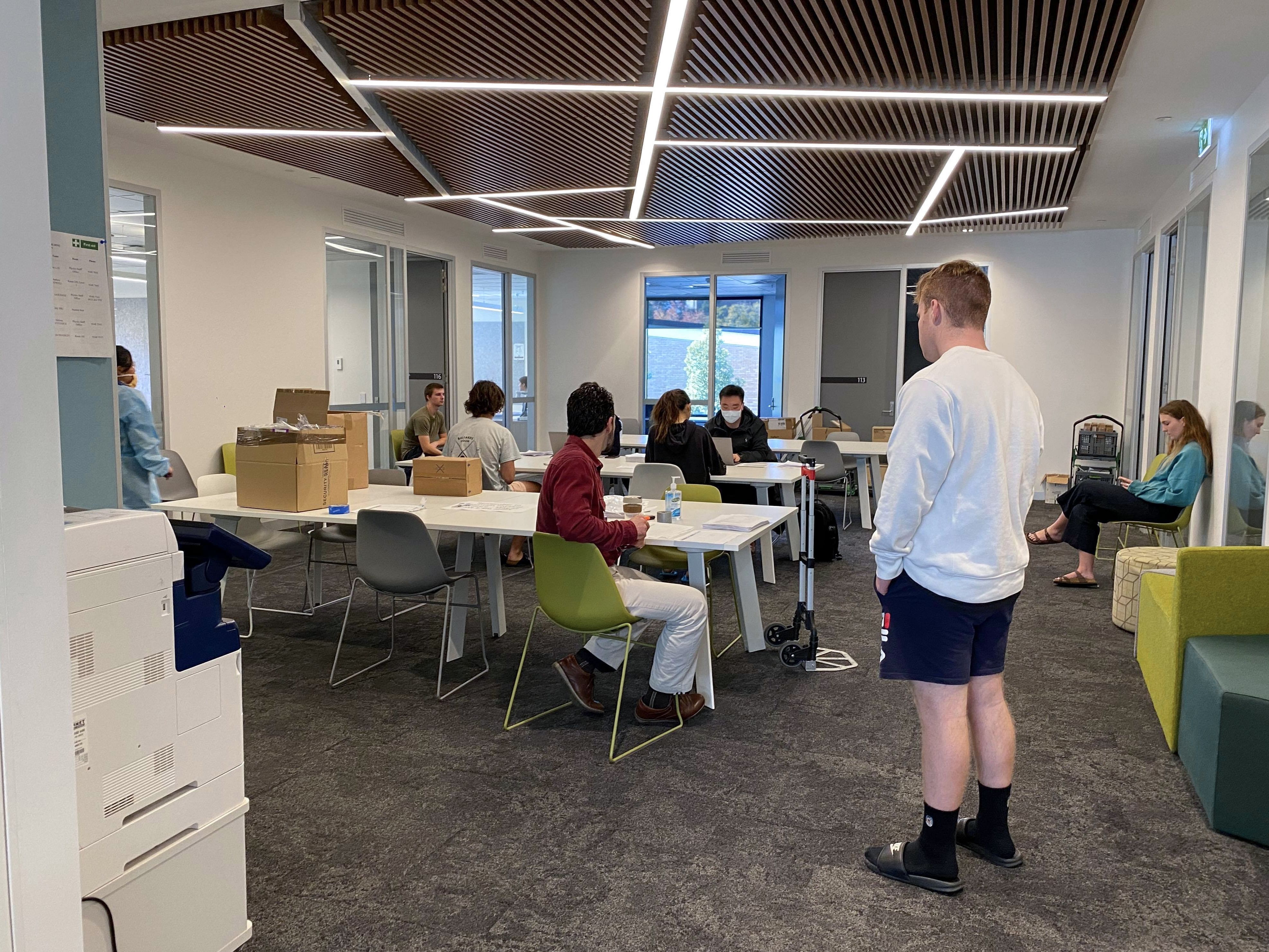
11 MAY
Victoria eases its restrictions.
21 MAY
The Trinity College Council holds its first-ever virtual meeting.

22 MAY
The Games Society hosts a trivia night, which off-campus students tune into via Zoom.
27 MAY
24 students are asked to leave Trinity’s Residential College for the remainder of the semester after holding a common room party that breached government and College restrictions.
29 MAY
The first virtual Pathways School valedictory is held.
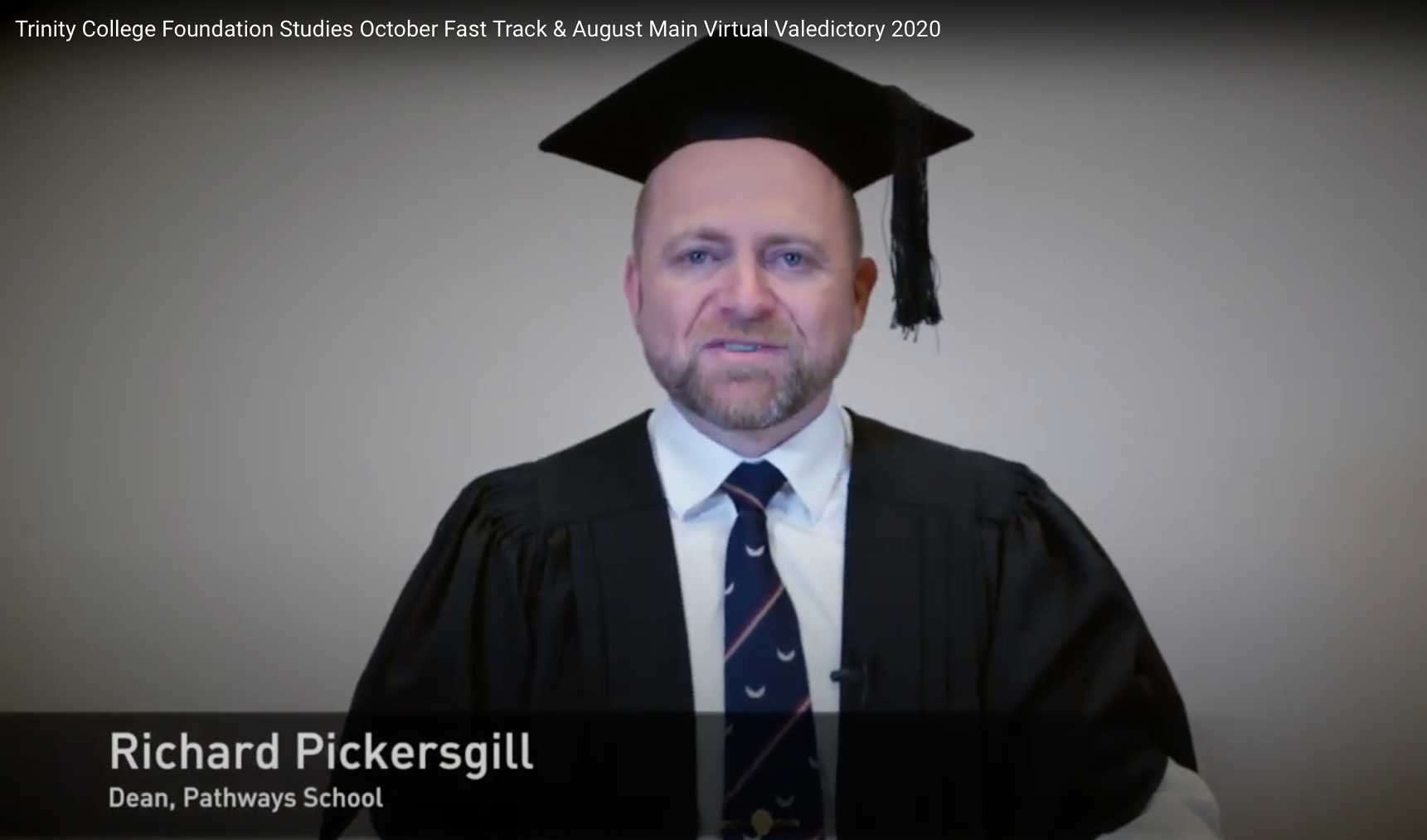
5 JUNE
Residential College students virtually tune into a compulsory meeting, where staff announce additional COVID-19 prevention measures at the College.
15 JUNE
Some Pathways School classes resume face-to-face teaching.
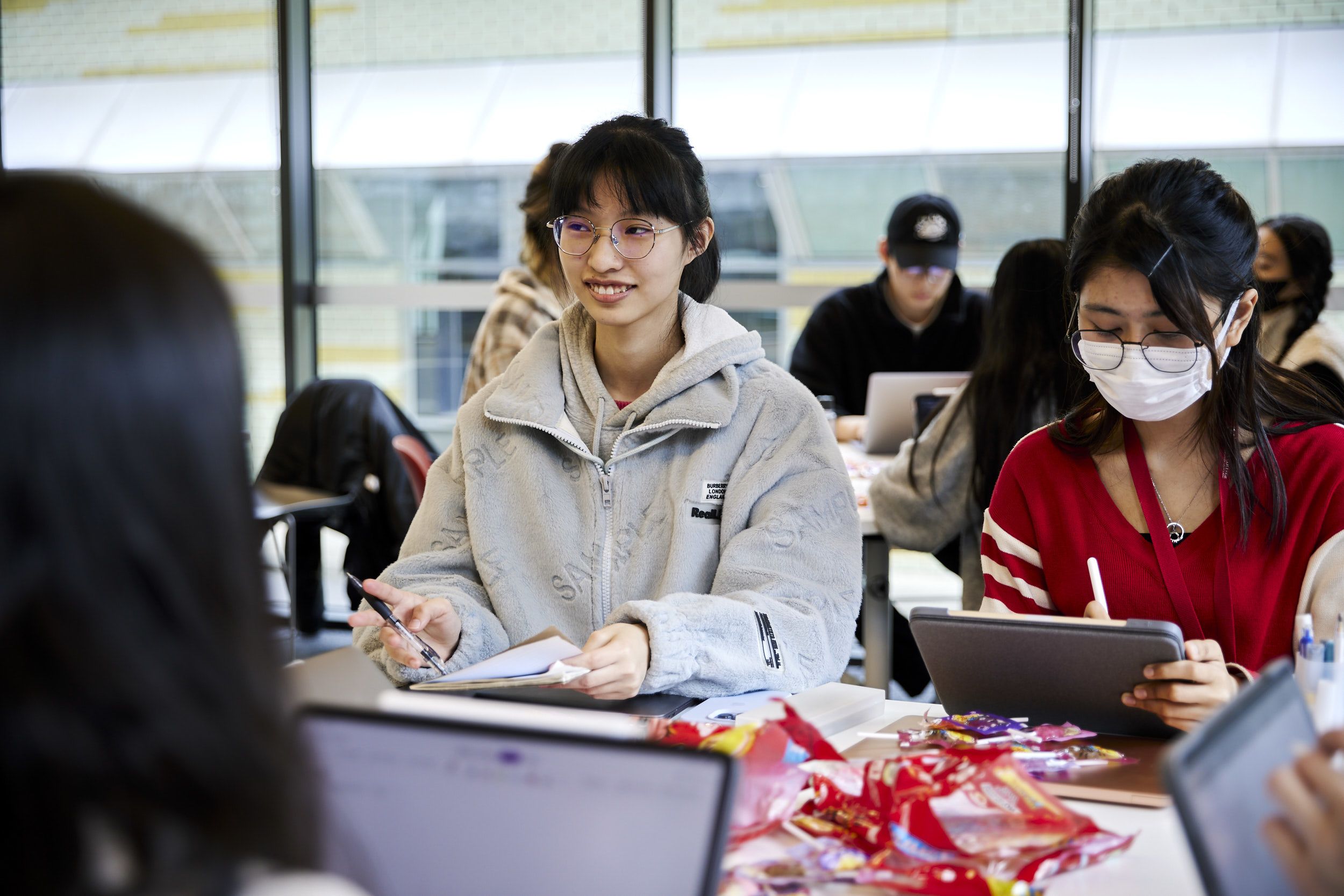
29 JUNE
Trinity calls for voluntary redundancies and fraction reductions.
30 JUNE
Selected ‘high-risk’ postcodes in Victoria go into lockdown.
1 JULY
Trinity makes plans to welcome Residential College students back to campus for semester 2.
7 JULY
The rest of Victoria goes into lockdown. The border between Victoria and New South Wales closes for the first time in 100 years (the last time being during the Spanish flu). The military patrols the border to prevent illegal crossings.
13 JULY
Trinity’s CEO Ken Hinchcliff announces to staff that the College’s Board-mandated break-even financial target was not met through voluntary redundancies, and therefore non-voluntary redundancies will be made.
2 AUGUST
Victoria enters a state of disaster and announces its toughest lockdown yet, including restrictions on travelling more than five kilometres from your home and a curfew between 8pm and 5am.
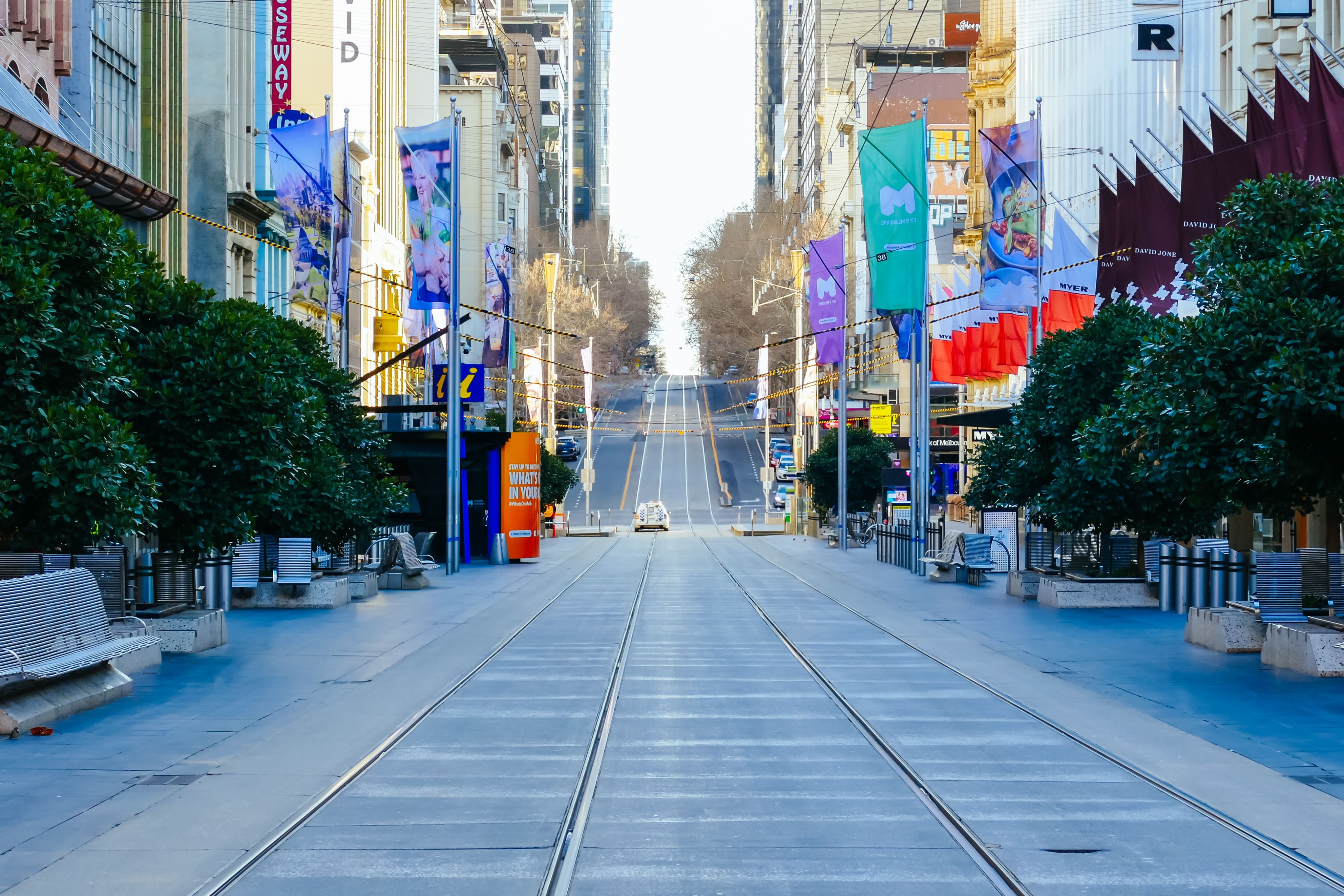
4 AUGUST
Victorians require permits to be able to travel to approved places of work.
14 AUGUST
The Pathways School holds a virtual lip sync battle with students studying Foundation Studies around the world.
13 SEPTEMBER
Being the only TCAC member residing on campus at the time, 2020 Female Sports Rep Emma Boyd-Law hosts the TCAC AGM in the JCR via Zoom.
6 OCTOBER
A $10m debt facility is approved by the Trinity College Board to help with the College cash flow if required. (This facility was never drawn on, and it was closed in September 2023.)
26 OCTOBER
Victoria’s lockdown ends.
6 NOVEMBER
Without Valedictory Day (V-Day) as an end-of-year last hurrah, students organise Technic, a socially distanced picnic with music supplied by the Tech Committee. White circles are painted on the Bulpadock to indicate where a maximum of 10 students can sit together.
7 DECEMBER
Warden Ken Hinchcliff has an opinion piece published in The Age about the positive impact international students have in Melbourne, to advocate for international students being allowed back into the country.
8 DECEMBER
A 90-year-old woman in the UK is the first person in the world to be given a COVID-19 vaccine.
2021
25 JANUARY
The Therapeutic Goods Administration (TGA) provisionally approves the Pfizer vaccine for use in Australia.
12 FEBRUARY
Victoria goes into lockdown again.
16 FEBRUARY
The TGA provisionally approves the AstraZeneca vaccine (manufactured by CSL) for use in Australia (see story about Trinity alum Andrew Cuthbertson’s involvement in its development).
18 FEBRUARY
Victoria’s third lockdown ends.
21 FEBRUARY
Only students are permitted onto the Trinity College campus for the Residential College move-in day, meaning family members and friends cannot leave their vehicles to meet staff or say goodbyes.
22 FEBRUARY
COVID-19 vaccination is rolled out across Australia. Face-to-face classes resume for Theological School students and in-country Pathways School students. Staff are encouraged to come back on campus.
22 MARCH
Mass vaccination centres open in Victoria, including at the Melbourne Convention Centre and Royal Exhibition Building.
31 MARCH
The Australian government indicates that it won’t invite international students back to Australia en masse until 2022.
21 MAY
The August Main and October Fast Track valedictory is the first in-person Pathways School event to be held on campus in more than a year. Twenty students attend in person, while hundreds of others tune in online from their home country.
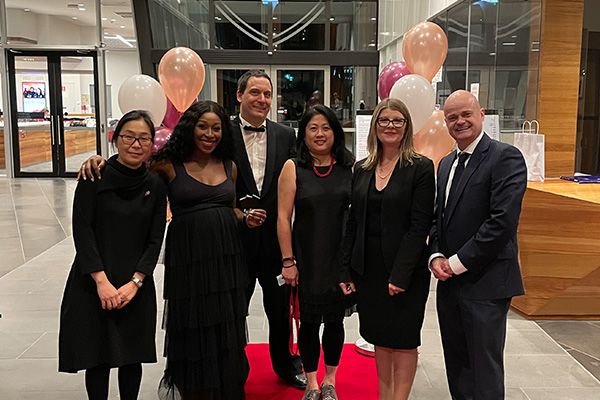
27 MAY
Victoria goes into lockdown for the fourth time. The Trinity campus is closed again.
3 JUNE
Restrictions are eased for regional Victoria, but metropolitan Melbourne remains in hard lockdown.
11 JUNE
Melbourne’s lockdown ends.
17 JUNE
All Victorian businesses are required to use the Victorian government’s QR code through the Service Victoria app (see story about Trinity alumni James Kane and Noah Harlan’s involvement in its development) and Victorians are required to check in everywhere they go to help contact tracers identify virus exposure points.
15 JULY
Victoria goes into lockdown for the fifth time.
20 JULY
Victoria’s fifth lockdown is extended.
28 JULY
Victoria’s fifth lockdown ends.
5 AUGUST
Victoria goes into its sixth lockdown.
9 AUGUST
The TGA provisionally approves the Moderna vaccine for use in Australia.
11 AUGUST
Victoria’s sixth lockdown is extended.
19 SEPTEMBER
The Victorian government outlines the state’s ‘roadmap out of lockdown’, which states that more freedoms will be available when 70 per cent of people in the state are vaccinated.
20 SEPTEMBER
The Pathways School introduces Trinity Talks – an online lecture series that gives prospective students a taste of Trinity’s Foundation Studies program.
27 SEPTEMBER
The University of Melbourne mandates vaccination for students and staff ahead of its campus re-opening on 5 November.
7 OCTOBER
With a forecast drop of $30m in revenue in 2022 compared to 2021, CEO Ken Hinchcliff announces that the organisation will be restructured and around 50 more staff will be made redundant.
18 OCTOBER
The Board approves the surrender of Trinity’s leased space at 200 Victoria Street and divesting of interest in 611 Elizabeth Street, planned to be Trinity’s second Pathways School campus.
21 OCTOBER
Melbourne exits its sixth lockdown, with vaccination rates reaching 70 per cent. By this stage, the city has racked up 262 cumulative days in lockdown. Ken Hinchcliff announces a new hybrid work policy, to come into effect from 1 January 2022, permitting staff to work up to 40 per cent of their regular hours from home. Pathways School teachers have their own work arrangements depending on teaching schedules.
29 OCTOBER
A COVID-positive person visits the Residential College, subsequently prompting student corridor ‘family units’ to be reinstated. Students who are deemed primary contacts are required to isolate until they can provide a negative COVID-19 test result on day seven.
15 NOVEMBER
Fully vaccinated Trinity staff are permitted to work on campus for up to 60 per cent of their work fraction for the rest of the year.
20 NOVEMBER
Two students in the Residential College test positive for COVID-19. The students move out and close contacts are required to isolate. Trinity’s end-of-year choral evensong is cancelled as a result.
15 DECEMBER
Fully vaccinated international students and skilled migrants are allowed to enter Australia.
22 DECEMBER
Many people in greater Melbourne are required to show a negative COVID-19 test result before travelling interstate for Christmas. At some state-funded PCR testing sites, people start lining up from 4am, prompting the testing clinics to suspend testing by 6am, due to an inability to keep up with demand.
2022
1 JANUARY
Trinity’s new COVID-19 vaccination and site attendance policy comes into effect, requiring that all staff, students and visitors to the Trinity College campus be fully vaccinated against COVID-19, unless they have a medical exemption.
2 JANUARY
With the rapid spread of the new Omicron variant of COVID-19, Trinity staff are once again instructed to work from home. (So much for the hybrid work policy that was meant to kick in at the start of the year.)
19 JANUARY
The TGA provisionally approves the Novavax vaccine for use in Australia.
30 JANUARY
Staff are invited to work from campus again if they choose. The College’s Senior Management Team accepts that COVID-19 is too widespread in the community to continue to strive for total exclusion in the College, and instead aims for management of the disease in line with its COVID-safe and COVID response plans.
21 FEBRUARY
Australia re-opens its border to double-vaccinated tourists and other visa holders for the first time in nearly two years.
22 FEBRUARY
The Victorian government announces the end of its work-from-home directive.
24 FEBRUARY
Trinity College announces that hybrid work arrangements will resume at the College from 15 March.
22 DECEMBER
The Victorian government makes rapid antigen tests (RATs) free to all Victorians. (Free or paid, those things went out the door like hot cakes.)
31 DECEMBER
Victoria closes the last of its state-run PCR testing sites.
2023
11 APRIL
The Pathways School goes back to 100 per cent face-to-face teaching.
5 MAY
The World Health Organisation says it no longer considers COVID-19 a global public health emergency.
>>> READ NEXT: EXIT STAGE LEFT